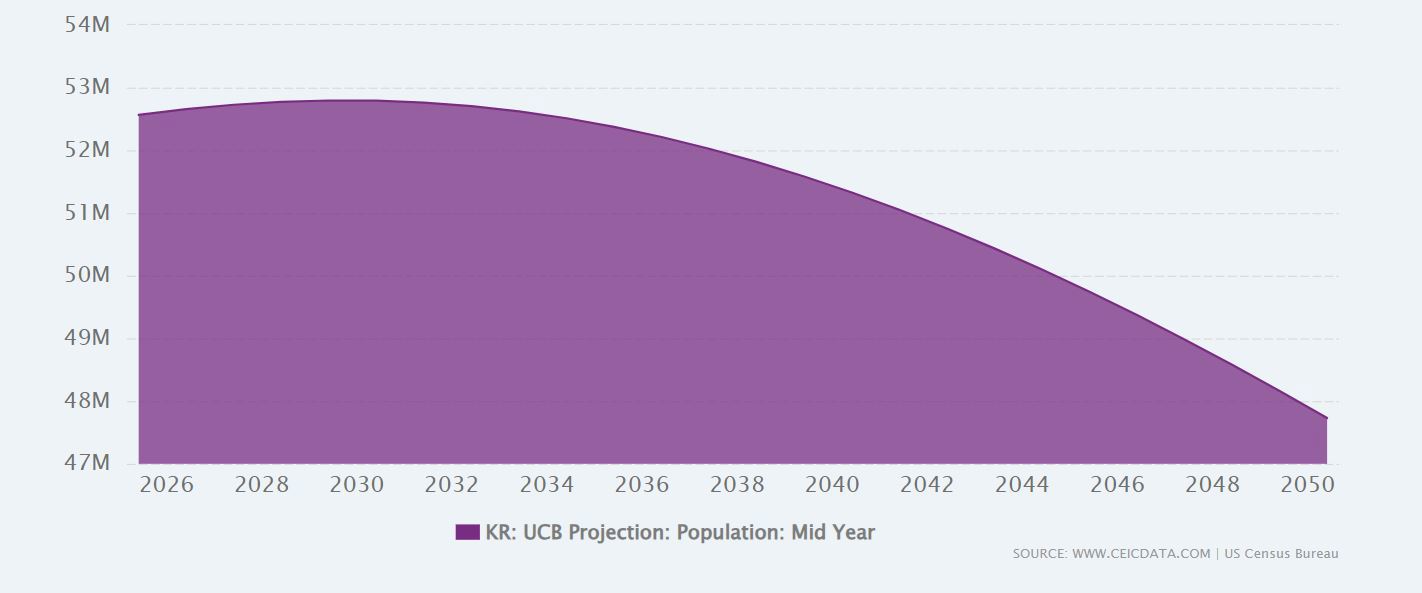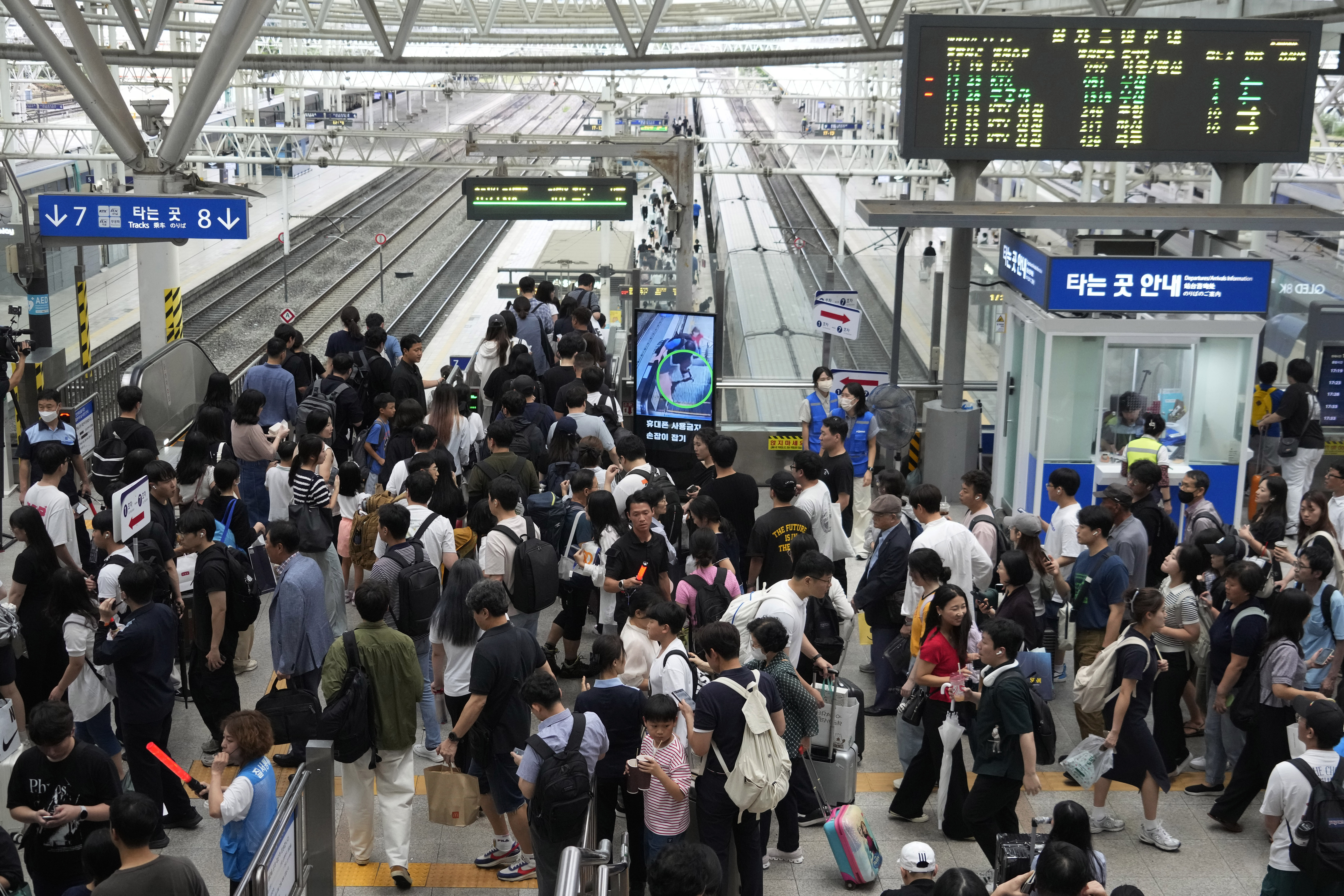South Korea's record-low fertility rate has plunged the country into an urgent population crisis.
The population is forecast to shrink by close to 20 million by the year 2070 and halve by 2100 – and it's been labelled a "national emergency" by President Yoon Suk Yeol.
"We don't have a lot of time," Yoon said in January of the country's crumbling population.
READ MORE: How Australia's new 'right to disconnect' rules apply to you

South Korea has the lowest birth rate in the world at a grim 0.72 children per woman.
Comparatively, Australia recorded a birth rate at 1.6 births per woman in 2023.
Countries need a fertility rate of 2.1 to maintain a stable population without immigration.
South Korea's immigration policy is also notoriously harsh: in order to immigrate you need to invest 600 million KRW ($733,000) into a business and hire five or more locals or marry a South Korean citizen.
READ MORE: What is going on with Australia's vaping laws?

Why exactly is South Korea's birth rate so famously low?
There are a few factors stopping South Korean women from having children, one major reason being the quality of life in the east Asian nation.
Many women have decided against having kids – a so-called "birth strike" – because of pay disparities at work, sexism, housing unaffordability and the country's infamously long work week.
Research has found the relentless pace of work, which is often low paid, has contributed to the plummeting fertility rate.
Sunghoon Kim, associate professor at Sydney University's Business School, said some blame lies in the "excessive work hours in Korea and the culture of loyalty to the employer".
South Korea does offer parental leave, however employees likely feel pressure to not take advantage of it.
Kim said on the Ear to Asia podcast that housing affordability is also making both men and women reconsider when to have children.

"There's some evidence that housing affordability is linked to the fertility rate. If it is so difficult to own a house, that means you have to work longer hours and work full time," Kim said.
"Then it pushes them to delay having a child… that means this younger generation grew up seeing how much their parents spent on them.
"They got scared. If I get married, have a child, can I do this?"
There's also some commentary which suggests South Korean women are shunning tradition in protest of a sexist society.
Chung Hyun-back, who served as the country's gender equality minister between 2017 and 2018, told the New York Times "our patriarchal culture" was to blame.
"The birth strike is women's revenge on a society that puts impossible burdens on us and doesn't respect us," Seoul woman Jiny Kim, 30, told the publication.
What are the consequences of South Korea's declining population?
There are both social and economic costs of a low fertility rate, no matter the country.
A declining population can result in economic pressure on the workforce, less infrastructure built to accommodate a rising population and a decrease in GDP.
Socially, it can result in less community engagement, a loss of culture and a strain on mental health.
A population decrease also lowers the rate of working-age citizens, which can harm the elderly population due to a lack of aged care workers and facilities.
READ MORE: How close is our planet to suffering the most catastrophic effects of climate change?

READ MORE: Home prices are skyrocketing in Australia, so why are they going in backwards in Melbourne?
What is South Korea doing about their population crisis?
The Yoon administration is funding housing and childcare to encourage South Korean women to have children.
Authorities in South Korea also reportedly hope an advanced underground rail network will reduce commutes for workers, which would "enable people to spend more time with their family in the mornings and evenings", Yoon said.
Major political parties in the country are promising more public housing, tax cuts and easier loans, which could have a positive impact on the birth rate.
"National extinction is not something that will happen far in the future, but instead it is an imminent challenge," Lee Jae-myung, a leader of the opposition Democratic Party, said in January.
Some experts believe immigration could mitigate the shrinking population, however it's unlikely to be enough to bridge the gap.
One local government in Busan, about 320km south of the capital Seoul, is even offering locals cold hard cash in the hopes of sparking more marriages - and hopefully, more births.
Singles are being offered up to $58,000 to fall in love and get married in a bid to combat the nation's plummeting birth rate,
from 9News https://ift.tt/vYO5iMH
via IFTTT
Comments
Post a Comment